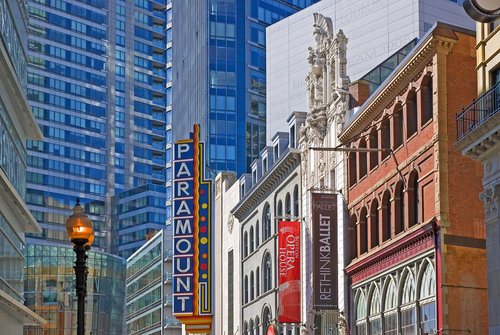We can definitively say that March was not the best month in the history of Boston’s real estate market.

Creative Commons: Ron Cogswell, http://commons.wikimedia.org/wiki/File:2011_BostonOperaHouse_Massachusetts_6244579324.jpg
Let’s just say that Boston has seen better days.
Per the latest analysis from GBAR, March was a trying month of real estate for Greater Boston, with total home sales falling 9.3 percent year-over-year and the condo market driving much of the overall decline; though single-family sales dropped 1 percent, condo sales fell 17.9 percent.
Here are some specific breakdowns of the market.
The Single-Family Market
•Median sales price was up 1.6 percent yearly to $433,750, with year-to-date prices up 5.1 percent.
•Inventory continued to collapse, falling 27.3 percent to just 2,237 (good for a 3.2-months supply)
•New listing were similarly down, falling 12.7 percent.
•Finally, it’s unlikely sales in April will show much improvement – pending sales in March were down 2.3 percent.
The Condo Market
•Though sales were down considerably (are are down 12.7 percent so far in 2015), median sales price continued to increase, jumping 6.9 percent year-over-year to $449,000.
•Inventory fell even steeper than single family, though, dropping 30.3 percent to 1,171 (that’s a 2.1-months supply).
•New listings were also down, falling 4.3 percent.
•In a welcome silver lining, pending sales rose slightly by 0.4 percent.
The Takeaway? The Usual Ailments Continue
Such statistics only reinforced what has become a broken record for Boston’s housing market, that of low inventory, soaring prices and plummeting affordability:
•Since 2013 – not even two and a half years – the median price for single-family homes is up 17.3 percent, and for condos, it’s up 20 percent.
•By no sheer coincidence, housing affordability in those sectors has fallen by near identical amounts, dropping 18.3 percent for single family and 20.6 percent for condos; such a correlation strongly suggests that prices are rising above wages, meaning that a smaller and smaller share of Boston’s population can handle the extreme increases in prices.
•And finally, we have inventory, the saddest stat of all. Since 2013, single-family inventory is down 30.3 percent, and condo inventory is down 39.04 percent.
It’s too early to make any definitive conclusions, but one must wonder if Boston’s low inventory and high prices are finally beginning to strain demand.
